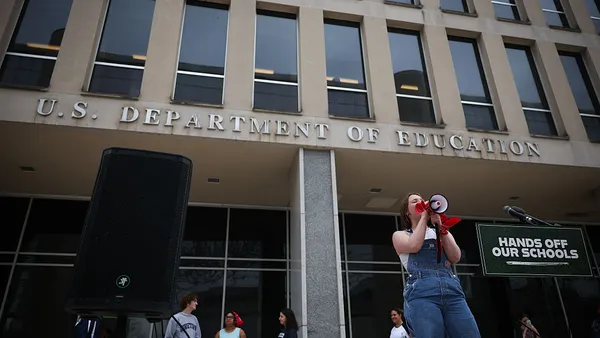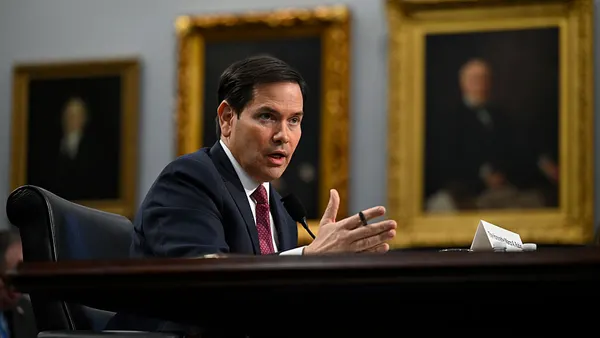Dive Brief:
- For-profit Christian college Grand Canyon University has secured approval from the Higher Learning Commission, its regional accreditor, to become a nonprofit institution, university officials said in a statement today. This was the second attempt at nonprofit reclassification for the Phoenix-based university founded in 1949 as a nonprofit, but which was sold in 2004 to a for-profit company. Grand Canyon has since increased on-campus enrollment by more than 18,000 students and enrolls more than 70,000 students in its online degree programs.
- As part of the transition, Grand Canyon Education (GCE), will sell certain academic assets to a non-profit entity that will carry the Grand Canyon University name. Following the sale, GCE will operate as a third-party provider of educational and related services to Grand Canyon and potentially to other universities.
- Critics of the conversion had said that the business split would still empower former nonprofits to enroll, educate and graduate for financial gain, but Grand Canyon officials argue they were seeking more financial freedom by erasing the for-profit "stigma" and growing athletic and fundraising brands. The university is the only for-profit school competing in the NCAA’s Division I athletics.
Dive Insight:
The Trump administration is opening once-closed doors to allow for-profit institutions through relaxed rulemaking on for-profit accreditation and institutional performance reporting. That could be good news for leaders of schools like Grand Canyon University, and other for-profits which collapsed under tightened restrictions just two years ago.
The Accrediting Council for Independent Colleges and Schools (ACICS) was stripped of its authorization authority in 2016 after several of its for-profit member institutions collapsed following sanctions being levied by the U.S. Department of Education for fraudulent recruitment and enrollment practices. Now that a new administration is signaling support for for-profit schools, ACICS is attempting to be re-recognized as an authorized gatekeeper for federal financial aid.
College presidents and administrators who are looking to reclassify, reactivate or establish new for-profit institutions now find a seeming partner in the U.S. Department of Education, but familiar opponents in educational advocacy groups and foundations which still believe for-profit education to be a waste of federal aid and students’ time. These leaders should be extra active in promoting how their institutions seek or currently follow best practices of student development and learning, and should look to engage the federal government and private companies in developing competency-based education programs which more easily define teaching and learning value for students.











